- Home
- Paul Christopher
Wisdom of the Bones Page 6
Wisdom of the Bones Read online
Page 6
Thomas Ian Andrew McSeveney was a tall man, thick in the waist, with a jewelled face, five o’clock shadow and dark hair he wore swept back with a razor-cut part on the left. His suit was dark blue, his shirt silky white and his tie a calm grey and green stripe. There were traces of talcum powder around his collar. He was smiling as he came into the room, his eyes large, a very pale and watery blue and full of sincerity. He sat down behind his desk and folded his bony-fingered hands together on top of his ledger.
‘Mr Duval. We spoke on the telephone.’
‘Detective Duval, as a matter of fact.’
‘You’re with the Dallas Police Department?’
‘That’s right.’
‘We’ve worked with Chief Curry on several occasions.’
Ray nodded. ‘I was at Mike Parson’s funeral. Got a card from one of your drivers.’
‘How fortunate,’ said McSeveney. ‘I hope we can be of service to you.’ McSeveney paused and leaned forward slightly. It was getting a little late in the day and the carnation in the man’s lapel was looking a little wilted. ‘As I understand it, the arrangements are for yourself?’
‘Right,’ said Ray briskly. He was beginning to wish he’d never come. He could have left things up to the Police Benevolent Society or even his brother.
‘Few people today have the foresight to pre-plan their own arrangements.’
‘I’m dying. My doctor says I’m living on borrowed time.’
‘Oh dear,’ said McSeveney, his voice much softer than his size. ‘I didn’t know.’
‘Of course not,’ said Ray. ‘I’ve only just met you.’
‘I’m not quite sure how to say this but…’
‘How long? Six months. Maybe a year. Maybe tomorrow morning. It’s not like I’ve made an appointment I have to keep.’
‘No, of course not.’
‘I want something simple. Plain.’
‘Umm,’ intoned McSeveney, not willing to commit himself to offering simple and plain without putting up a fight. ‘Why don’t we take a look in the Selection Room.’ Ray could almost hear the capital letters. He nodded and followed McSeveney out of his office and down a short carpeted hallway. It was interesting; McSeveney was running a business, that was sure enough, but there were no signs of it. Everything was quiet, muted, understated. No clacking typewriters, no laughter over the coffee urn. Nothing.
McSeveney led Ray into a large room painted in a pale green with framed panels of red silk, or maybe it was rayon; there was no real way to tell because the lighting, like everything else, was muted and there wasn’t a lot of reflected light off the beige carpeting. The room was full of coffins, which Ray commented on.
‘Caskets, Detective Duval. A casket is something altogether different from a coffin.’
Ray wasn’t quite sure about the difference but he kept his mouth shut. He was shown several colonial styles, a French Provincial with gold ‘accents,’ a Valley Forge from Boyertown Burial Casket that looked to Ray more like an Early American cupboard than a place to put a body and finally a medium-priced casket from Major Casket that offered something called a Beautyrama Adjustable Soft Foam bed. According to McSeveney all the beds were made with Sealy innerspring mattresses, which was the same brand Ray had on his bed. He settled for that one and then asked about embalming.
‘How long does it really last?’
‘That depends on conditions,’ McSeveney answered. The mortician was sweating like a purse snatcher.
Ray smiled. ‘Conditions?’
‘Weather, soil porosity and the like.’
‘So one way or the other the worms are going to get at me eventually.’
‘I wouldn’t put it quite that way, Detective.’
‘No, I guess y’all wouldn’t.’ Ray decided to let him off the hook; he’d had as much of the place as he could take. They went back to the office and Ray wrote a cheque for the price of the coffin and a pickup in one of McSeveney’s Ford meat wagons, which the undertaker called a ‘service vehicle’ – a station wagon rather than a hearse.
‘Interment?’ McSeveney asked, fountain pen poised over the sheet in the ledger he was filling in with Ray’s information.
‘You mean where am I going to be buried?’
‘Yes.’
‘I haven’t decided.’ There were half a dozen cemeteries in Dallas and at least that many more in Fort Worth. There was even the family plot in Burkburnett for that matter. ‘Is that going to be a problem?’
‘Not at all,’ said McSeveney. ‘We have affiliates all over the state and we are in touch with establishments such as our own all over the country.’
We can plant you anywhere, Ray thought.
‘We’ll need some time to make those arrangements, however,’ said McSeveney.
‘How much time?’
‘The sooner the better.’ The mortician had given up and opted to echo Ray’s practical style. ‘Flowers?’
‘People want to bring some they can but I’m not paying for any extra if that’s what you mean.’
‘No flowers.’ McSeveney pursed his lips and made a little tick in the ledger. ‘And how long would you wish to remain in the Slumber Room?’
‘Slumber Room? I’ll be dead, not sleeping.’
McSeveney sighed. ‘The Slumber Room is where the client remains on display so his friends can pay their last respects.’
‘Costs more, right?’
‘No more than a good motel. Roughly fifty dollars per day with a three-day minimum.’
‘Come with TV and a pool?’
McSeveney didn’t so much as crack a smile. ‘I’m afraid not, Detective.’
‘I don’t have that many friends,’ said Ray, ‘and those I do have I hope will come and visit me in the hospital before I shrug off this mortal coil.’
McSeveney smiled. Here was something they could share. ‘Ah, Wordsworth.’
‘Shakespeare,’ Ray corrected. ‘Hamlet. Anyway, no Slumber Room.’ He stood up and reached out a hand across the desk. ‘Thanks for your help.’
McSeveney stood up and shook Ray’s hand. The grip was surprisingly strong and dry, more like a bank manager than what you’d expect from someone who traded in dead bodies and embalming fluid. God only knew what kind of person went into a business like this. Was it by choice?
‘I guess the next time I see you, I won’t be seeing you at all,’ Ray commented.
‘Quite so,’ said McSeveney and that was the end of that. Ray found his own way out of the silent building and stepped out onto the street again.
Chapter Five
A faint spitting rain was beginning to fall. Ray looked at his watch. It was past five. He went back to W. Jefferson, passed under the Texas Theatre marquee, the smell of the popcorn and the hot dogs from inside reminding him that he hadn’t eaten in a while. He kept on going down the street to Inky’s Restaurant at the far end of the block. He picked up a copy of the Times Herald from the box by the door and went inside, choosing a table by the window.
A waitress came by and he ordered a chicken fried steak with some okra on the side and a Tecate. He’d seen the waitress before and liked her but he’d never found the right way to even ask her name. She was in her thirties and looked tired but she was pretty in a worn-out way with long blonde hair. The beer came first and he emptied out the red can into a glass then sat back against the padded booth and looked at the newspaper.
The whole front page was Kennedy, with a bit of Johnson and Connally thrown in for good measure. The reporting on the presidential visit ran for almost the whole first section, with a sidebar on what a perfect place the Convention Center was going to be for the lunch. When you got right down to it the whole thing was just a laugh and scratch for the assorted peckerwoods in the Democratic Party who’d be shaking hands with the man until his wrist ached and trying to get a closer look down the front of Jackie’s dress.
Ray’s steak came. He tumped the little dish of okra beside his mashed potatoes and then poured the light-colo
ured milk gravy over everything. He picked up the salt shaker, put it down again and doused his plate with pepper instead. He’d always been a salt lover but the doctors told him that was part of what was killing him so he’d laid off over the past month or two. All things considered he was beginning to wonder if it really mattered a whole hell of a lot. He picked up the salt and tapped it over his plate.
Alternating bites of his food with sips of the sweet Mexican beer and glances at the folded paper on the table beside him, Ray let his mind wander over the events of the day. Death was coming up on him quick and dirty and there didn’t seem to be any way he could avoid it. Borrowed time was one thing but you didn’t expect the banker to be looking over your shoulder, keeping an eye on his dough all the time. First the dump and Jennings Price, then Doc Rose and finally McSeveney and his caskets-not-coffins. He finished his beer and the waitress came over and asked him if he wanted another one.
‘Sure,’ he said. ‘That’d be nice.’
When she returned with his beer, he gave her a nice smile. ‘Ask you a question?’
‘Long as it’s not my phone number or do I think Jackie is just cute as a button.’
‘No, nothing like that. You know the difference between a coffin and a casket?’
‘This some kind of joke?’
‘Nope.’
‘It’s a funny question.’ She poured the Tecate into his empty glass.
‘I’m serious.’
‘I know you are. I’m just thinking here.’
Ray took a sip of beer and then a forkful of okra, leaning his chin over the plate to keep the gravy off his shirt. He chewed and swallowed. ‘Any idea?’
‘Yeah,’ said the waitress. ‘I think a coffin is one of those things you see in a Vincent Price movie. Kind of like a stretched-out diamond with the top and bottom cut off. It has a shape, you know? Like sort of shoulders. And a casket is what you see at funerals now. Rectangles with the top curved a bit. That sound right?’
‘I think that’s probably right,’ said Ray.
‘Why you want to know?’
Ray didn’t want to tell the woman it was for him so he just gave her another smile. ‘No reason really. Just curious.’
‘You always get curious about things like that?’
‘I’m a cop,’ said Ray. ‘Kind of comes naturally, I guess.’
‘I guess,’ said the waitress. She picked up the two empties and wandered off. Ray went back to his steak. Knowing what you were going to die of and approximately when had a few advantages. Walking dead like he was meant you could arrange things the way you liked, and pretty much do as you liked for as long as you had, and then you just kind of sat back and took your medicine.
Doc Rose knew all about other people dying but he didn’t have any information about himself; just because he was a pathologist didn’t mean he could take a rib spreader to his chest or a Stryker saw to his skull for a little peek inside.
And then there was Jennings Price, the death of the day. According to the medical examiner his head had come off in a single stroke and from the back. Surely he hadn’t seen that coming, had he?
Ray filled his fork with mashed potatoes and knifed a little okra on top. He had to admit to himself he’d never seen anything like it. For him murder was pretty simple: criminals killing each other off or husbands and wives killing each other off or robbers accidentally killing off the people they were robbing. Detecting that kind of thing was reasonably easy even when it was a mob hit. A few years before when Tincy Eggleston wound up in a Tarrant County cistern it was easy enough to conclude that the crime boss had been rubbed out by one of his competitors. It took a while but eventually they got a tip that led to the killer and it was another file closed.
Jennings Price was something else altogether; the only thing Ray had heard about that was even close was the man up north they were calling the Boston Strangler. At last count he’d raped and strangled eleven women in the Boston area and there didn’t seem to be any connection between the victims except their sex. According to Doc Rose, Price had been gay but sexual contact hadn’t been part of the killing.
Ray took another bite of steak, then pushed his plate away. He sipped his beer, eyes closed, his head back against the padded booth. Why do you cut a guy up, put him back together and just for kicks slice off big chunks of skin? You’d have to be crazy to do that kind of thing, but then again, there seemed to be some feuding going on, so maybe the crazy part of it was just covering up some kind of simple greed.
One thing was sure: He wasn’t going to solve the killing in one day. Tomorrow he’d interview the other Texana dealers in the city, including the ex-lover, Valentine. He pushed himself up and out of the booth with some difficulty then paid his bill to the waitress, who was standing behind the register.
‘Ask you another question?’
‘Sure,’ said the waitress, watching as he shoved two bucks into the tip jar.
‘What’s your name?’
‘Rena,’ she said and smiled. Ray smiled back.
‘Nice name.’
‘Nice of you to say so,’ she said. Ray smiled again and handed her the folded newspaper. ‘Maybe someone else might like to read it.’ The waitress nodded pleasantly but there wasn’t anything extra in it. Ray left the restaurant and walked back to his car. Ten minutes later he was home.
Home was a standard postwar concrete bungalow below Davis on Melba Street, less than a dozen blocks north and west of Inky’s Restaurant and McSeveney’s Funeral Home. The bungalow was small, about all he could afford after the Second World War and before Korea.
He’d bought it because Lorraine wanted her own house but she never stopped complaining about it for the whole time they were together. It had two bedrooms, one for the kid they never got around to having, a living room, a dining room, a kitchen and a bathroom. He’d finished off the basement and made a workshop for himself when he got back from Korea and found out that Lorraine was whoring around and he’d turned the second bedroom into a study with built-in bookcases he put together in the basement.
He knew Lorraine had run off with a businessman from Houston who told her he had money in oil but two years later, when she died in a car accident in Corpus Christi, it turned out he was nothing but a cheap hood named Alvin Bert Krolik fronting for the Stateline mob in Mississippi but more often making his own way by holding up liquor stores. Ray had drunk a toast to Lorraine’s memory and was sad for a week or so but that was it. When the week was done he felt more relieved than anything else. He’d been with a few women since but nothing very long and nothing very serious, which bothered him sometimes but not often enough for him to do anything about it.
Ray parked the Chevy in the driveway, went up the three steps to his enclosed porch one at a time and keyed the lock on the front door. He opened it, stepping directly into the living room. The floors were oak, the varnish gone dark over the years, but he’d brightened up the room with a green braided rug and a whole room full of matching green furniture from Sears, Roebuck. It was five years old now but it looked good as new, mostly because he rarely had anyone over and never used the room himself but it was nice to see first thing when he opened the door.
There was a fireplace at the end of the room with a bookcase on one side, mostly filled with an Encyclopaedia Britannica set he’d bought at a second-hand store. On the wall over the couch there was a framed painting he’d picked up at the same place. It was an old sailing ship, all sails set, running with the wind, waves breaking over her bow and so realistic it almost seemed to jump out of the frame at him. He could even read the name on the bow: Dawn Treader.
To the right of the fireplace was the dining room. Lorraine had filled it with dark English-style furniture from the twenties that she thought was antique but as soon as she’d gone he sold it to the second-hand place where he’d bought the encyclopaedias and the picture and then he’d gone to Sears again.
The telephone rattled noisily and he picked it up on the second ring.
It was Earl Rose.
‘Headquarters said you’d gone home.’
‘You find something?’
‘Of course or I wouldn’t be calling.’ Earl was clearly in one of his moods so Ray just kept his mouth shut but that didn’t work either. ‘You don’t care what I found out? You think I give this kind of service to anyone who brings me a body? Maybe I should just send you a report in a week or so.’
‘I’m interested.’
‘Cause of death.’
‘You said it was some kind of heavy blade.’
‘I was wrong. Looking in the wrong place.’
‘What was the right place?’
‘Corner of the right eye. I didn’t see it until I had the brain out. Some kind of extremely sharp instrument with a U-shaped blade. A miniature chisel of some kind. Never seen anything like it. Left a four-inch notch right into the front of the brain. He might have gone on breathing for a while afterwards but he was dead in a second or two. Thought you might like to know.’
‘What kind of person uses a tool like that?’
‘Beats me. At a guess I’d say it’s some kind of engraving tool.’
Ray thought about the inscription on Price’s Omega and Edelson the jeweller. ‘Like the engraving you’d do on a wristwatch?’
‘Not that fine and I think they use some kind of electric tool for that.’ The doctor paused. ‘An artist maybe, that’s the only thing I can think of.’
‘Thanks. I appreciate it.’ Ray found himself thanking a dial tone.
He turned out of the dining room into the hall and went into the bathroom, which hadn’t changed at all since he bought the house. The tub was deep, the toilet had a wooden seat and the floor was black and white tile. He undid his belt, slipping down his pants and peed sitting down because it was easier. He sat there, leaning his left arm on the edge of the tub for support, feeling the hard pulse of the artery in his neck and trying not to count the beats. He thought about what the doc had said but it just made things more confusing. He stayed sitting, even after he’d finished, knowing that if he stayed too long his legs would go to sleep. He stared at the black and white tiles and smelled the bleach he’d used to clean the tub a few days ago. Clorox, same as the stuff Rose used in the morgue at Parkland.

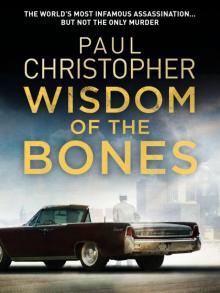 Wisdom of the Bones
Wisdom of the Bones The House of Special Purpose
The House of Special Purpose The Second Assassin
The Second Assassin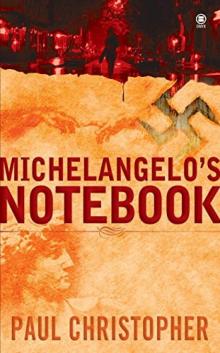 Michelangelo's Notebook
Michelangelo's Notebook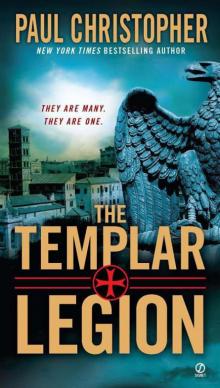 Templar Legion
Templar Legion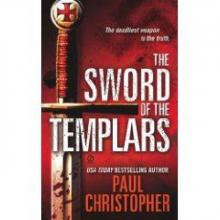 The Sword of the Templars t-1
The Sword of the Templars t-1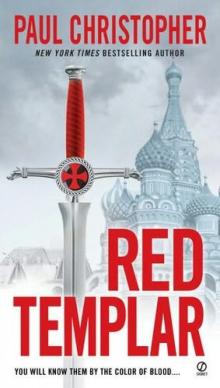 Red Templar
Red Templar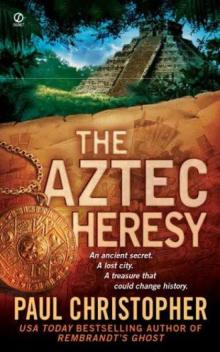 The Aztec Heresy
The Aztec Heresy The Templar Legion
The Templar Legion Rembrandt's Ghost
Rembrandt's Ghost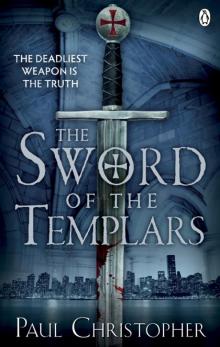 Sword of the Templars
Sword of the Templars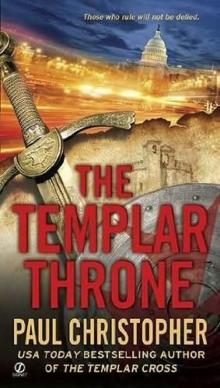 The Templar throne t-3
The Templar throne t-3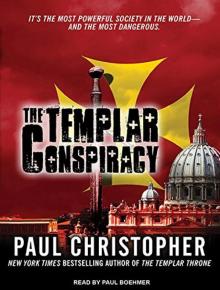 The Templar Conspiracy
The Templar Conspiracy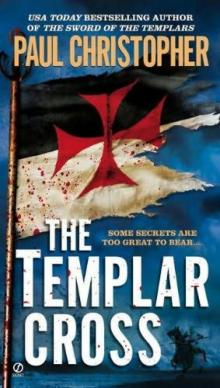 The Templar Cross t-2
The Templar Cross t-2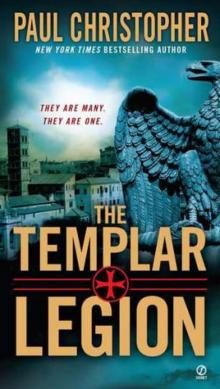 The Templar Legion t-5
The Templar Legion t-5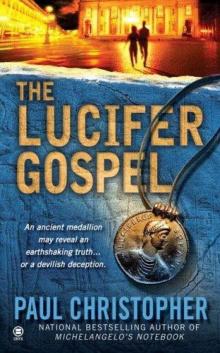 The Lucifer Gospel
The Lucifer Gospel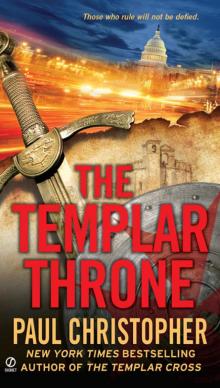 Templar Throne
Templar Throne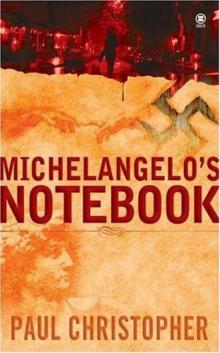 Michelangelo_s Notebook fr-1
Michelangelo_s Notebook fr-1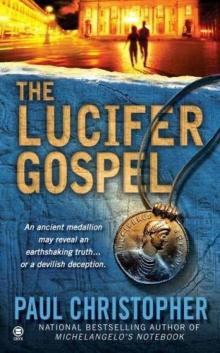 The Lucifer Gospel fr-2
The Lucifer Gospel fr-2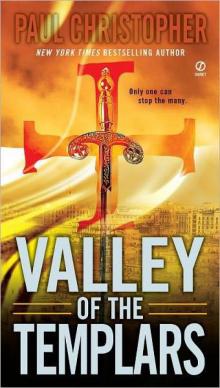 Valley of the Templars ts-7
Valley of the Templars ts-7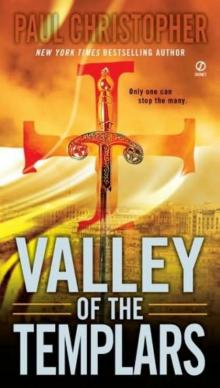 Valley of the Templars
Valley of the Templars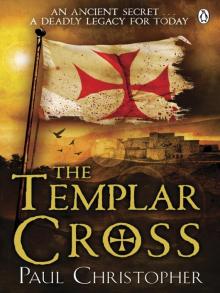 Templar Cross
Templar Cross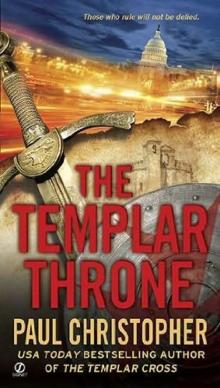 The Templar Throne
The Templar Throne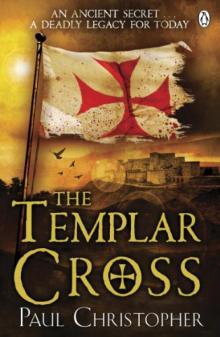 The Templar Cross
The Templar Cross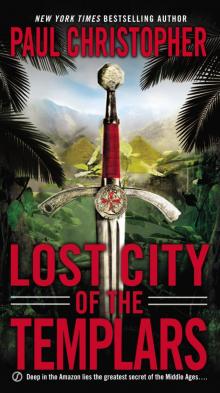 Lost City of the Templars
Lost City of the Templars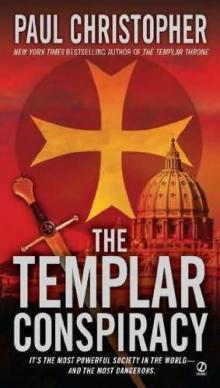 The Templar conspiracy t-4
The Templar conspiracy t-4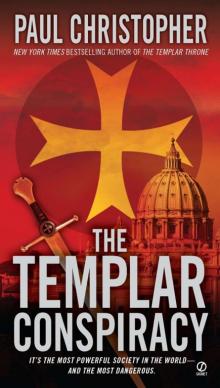 Templar Conspiracy
Templar Conspiracy